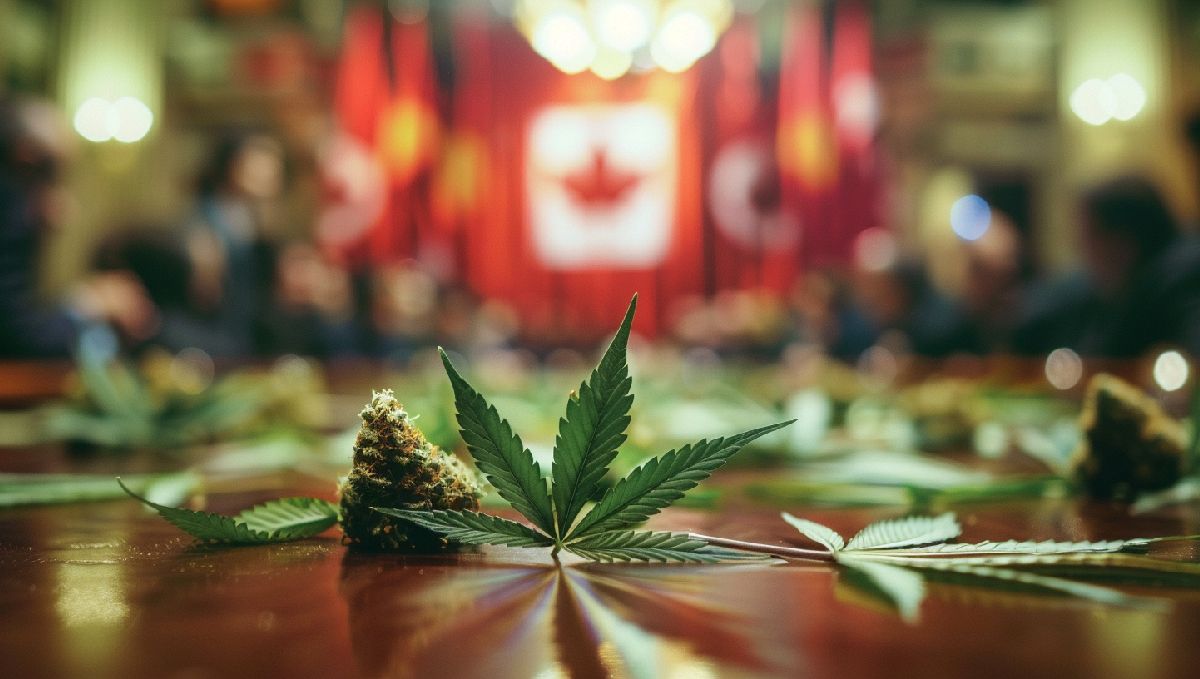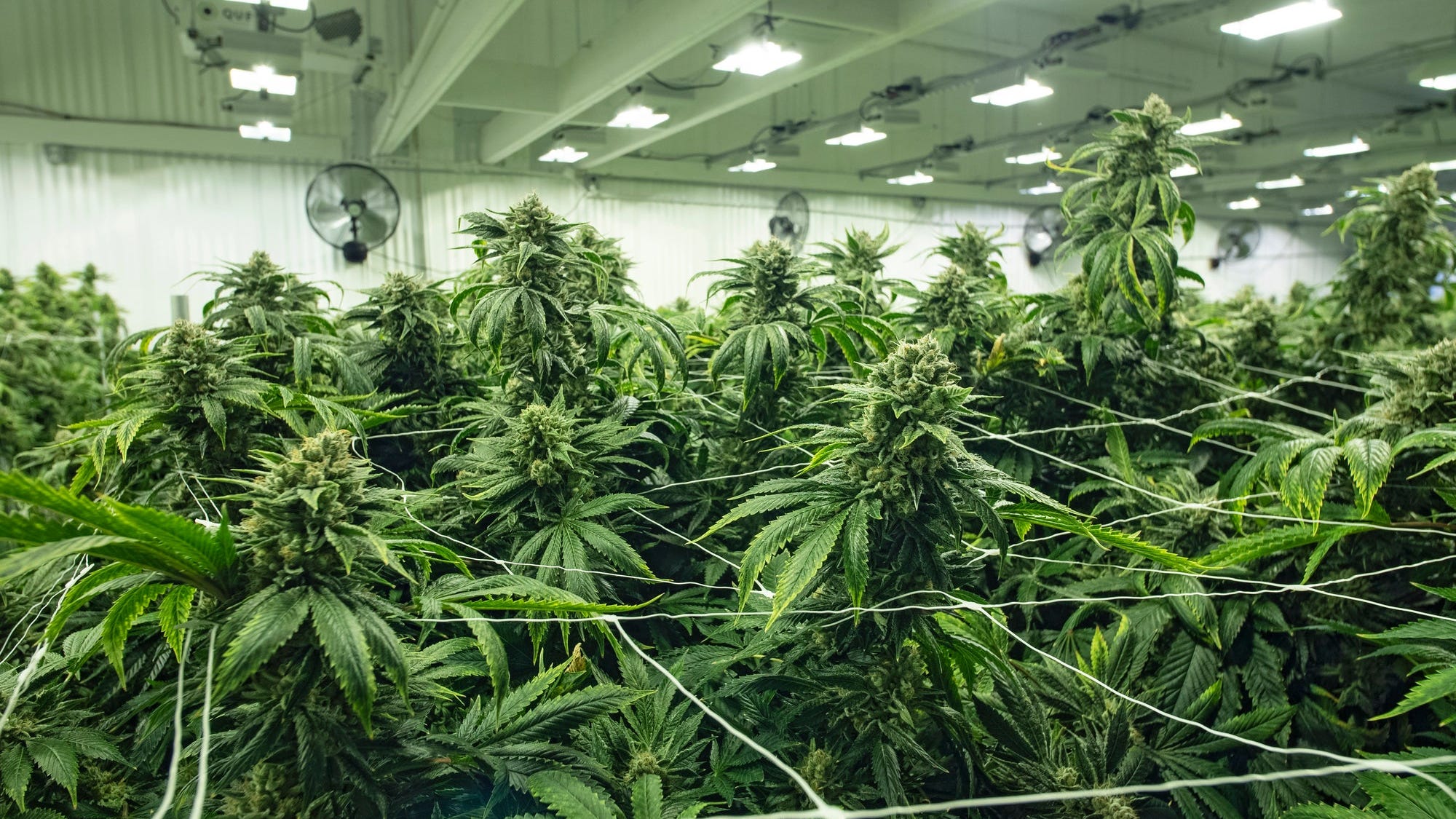
A Blow to Local Autonomy: Texas Court Strikes Down San Marcos’ Marijuana Decriminalization
In a significant ruling on April 17, 2025, the Texas Fifteenth Court of Appeals declared San Marcos’ voter-approved marijuana decriminalization ordinance unenforceable, siding with state authorities in a contentious battle over local governance and drug policy. This decision, rooted in the state’s stringent drug laws, underscores the ongoing tension between municipal autonomy and centralized control in Texas, particularly on the issue of decriminalizing marijuana. With 81.8% of San Marcos voters approving Proposition A in 2022, the ordinance aimed to halt citations and arrests for possessing up to four ounces of marijuana unless tied to violent crimes or felony-level narcotics investigations. However, the court’s ruling, spurred by a challenge from Texas Attorney General Ken Paxton, has halted its enforcement, leaving advocates and residents grappling with the implications.
The Rise of Proposition A and Grassroots Momentum
San Marcos, a vibrant college town home to Texas State University, became a flashpoint for marijuana decriminalization in 2022 when Proposition A passed overwhelmingly. The measure was part of a broader wave of local initiatives across Texas, with cities like Austin, Denton, Killeen, Elgin, and Harker Heights also adopting similar ordinances. Proposition A sought to decriminalize marijuana possession for personal use, reflecting a growing public sentiment that low-level cannabis offenses should not clog the criminal justice system. According to the Texas Department of Public Safety, in 2021, over 27,000 arrests were made statewide for marijuana possession under two ounces, a figure advocates argued diverted resources from more pressing public safety concerns. The San Marcos ordinance was designed to redirect police focus, prioritizing community safety over minor drug enforcement.
The campaign for Proposition A was driven by groups like Ground Game Texas, which mobilized voters through grassroots efforts and marijuana decriminalization online platforms. Social media campaigns on X amplified the message, with posts highlighting the economic and social costs of marijuana prohibition. One notable post from @MarijuanaMoment on April 21, 2025, emphasized the court’s ruling as a setback for voter-driven reform, noting the state’s preemption of local policy with “unmistakable clarity.” These online efforts galvanized younger voters, particularly students, who saw decriminalization as a step toward equity, given that Black and Hispanic Texans face disproportionate arrests for cannabis possession despite similar usage rates across racial groups, per a 2020 ACLU report.
The Legal Clash: State Power vs. Local Will
The Texas Fifteenth Court of Appeals’ decision hinged on the state’s legal framework, which prohibits municipalities from adopting policies that fail to fully enforce drug laws. Attorney General Ken Paxton, a vocal opponent of local decriminalization efforts, argued that San Marcos’ ordinance violated the Texas Controlled Substances Act. The court agreed, issuing a temporary injunction to block enforcement pending a trial on the merits. This ruling aligns with Paxton’s broader campaign against municipal decriminalization, as seen in his lawsuits against Dallas, Austin, and other cities. In Dallas, a judge allowed a similar ordinance to proceed temporarily, but San Marcos faced a different fate, highlighting the inconsistency in judicial outcomes.
The court’s rationale rested on the doctrine of preemption, asserting that state law supersedes local ordinances when they conflict. Texas’ strict cannabis laws, which only permit limited medical marijuana use under the Compassionate Use Program, left little room for San Marcos’ reform. The program, serving fewer than 30,000 patients statewide as of 2024, restricts access to low-THC products for conditions like epilepsy and PTSD, excluding recreational or broader medical use. This rigidity frustrated advocates like Claire Kamp of Ground Game Texas, who, in a FOX 7 Austin interview, called the ruling “very, very frustrating,” lamenting the overturning of voter will. The San Marcos City Council, caught in the crossfire, announced plans to discuss legal strategies in an upcoming executive session, signaling a potential appeal.

Economic and Social Ripples of the Ruling
The court’s decision reverberates beyond San Marcos, affecting Texas’ burgeoning hemp industry and broader drug policy debates. In 2019, Texas legalized hemp products containing less than 0.3% THC, spawning an $8 billion industry with over 8,300 retail locations. However, lawmakers, led by Lieutenant Governor Dan Patrick, are pushing to ban all consumable THC products, citing public health risks. Senate Bill 3, passed by the Texas Senate in March 2025, aims to shutter this industry, a move critics like Mark Bordas of the Texas Hemp Business Council argue conflates low-THC hemp with high-potency marijuana. The San Marcos ruling strengthens this narrative, potentially emboldening efforts to tighten cannabis regulations statewide.
Socially, the decision undermines trust in local governance. San Marcos residents, who voted decisively to decriminalize marijuana, now face a system where their voices are sidelined by state intervention. This echoes sentiments in Lockhart, where the city council initially ignored a 2024 voter-approved decriminalization measure, only to reconsider after public outcry. The economic cost of continued enforcement is also significant: a 2023 Texas Criminal Justice Policy Council report estimated that processing low-level marijuana cases costs the state $730 million annually, funds that could support education or infrastructure. Online discussions on X, including a post from @KENS5 on April 20, 2025, highlighted the ruling’s chilling effect on other Texas cities considering decriminalization, predicting a slowdown in reform efforts.
The Path Forward: Resistance and Reform
Despite the setback, advocates remain undeterred. Ground Game Texas and similar groups are exploring legal challenges, drawing inspiration from Dallas’ temporary success. Marijuana decriminalization online campaigns continue to gain traction, with hashtags like #DecriminalizeMarijuana trending on X, amplifying calls for legislative change. The Texas House, more open to regulation than outright bans, is debating House Bill 28, which focuses on overseeing the hemp industry rather than dismantling it. This contrast with the Senate’s hardline stance suggests a potential compromise, though passage remains uncertain.
Nationally, Texas’ approach stands out. As of 2025, 24 states have legalized recreational marijuana, and 38 allow medical use, per the National Conference of State Legislatures. Texas’ resistance to broader reform, coupled with its preemption of local ordinances, positions it as an outlier. Yet, public opinion is shifting: a 2024 University of Texas poll found 60% of Texans support legalizing recreational marijuana, up from 42% in 2018. This growing support, particularly among younger voters, could pressure lawmakers to reconsider their stance, especially as neighboring states like Louisiana and New Mexico embrace legalization.
A State at a Crossroads
The Texas Fifteenth Court of Appeals’ ruling against San Marcos’ marijuana decriminalization ordinance is more than a legal defeat; it’s a flashpoint in the struggle over who controls drug policy in Texas. For San Marcos residents, the decision invalidates a democratic mandate, raising questions about the power of local governance in a state dominated by centralized authority. For advocates, it’s a call to action, fueling efforts to decriminalize marijuana through litigation, legislation, and public advocacy. As Texas grapples with its identity as a conservative stronghold with a diversifying electorate, the fight over cannabis policy will likely intensify, shaping the state’s social and economic landscape for years to come. Whether through court battles or ballot boxes, the push to decriminalize marijuana remains a potent force, one that neither state law nor judicial rulings can fully suppress.
Discover premium wholesale products with D Squared WorldWide, your trusted partner in quality and innovation. From cutting-edge hemp-derived solutions to everyday essentials, our curated inventory meets diverse market demands, ensuring your business thrives. With competitive pricing and a commitment to excellence, we empower retailers to boost profits and captivate customers. Join the countless businesses nationwide choosing D Squared WorldWide for reliable supply and unmatched support. Ready to elevate your product offerings? Schedule a call with our team today to explore our exclusive range and unlock your business’s full potential. Act now—your success starts here
Reference:
1. (2020). Fisheries. Fisheries, 45(6), 289-338. https://doi.org/10.1002/fsh.10297
2. Blanton, C., Perkin, J., Menchaca, N., & Kollaus, K. (2020). A gap in the armor: spearfishing reduces biomass of invasive suckermouth armored catfish. Fisheries, 45(6), 293-302. https://doi.org/10.1002/fsh.10410
Dapari, R., Mahfot, M., Nazan, A., Hassan, M., Dom, N., & Rahim, S. (2022). Acceptance towards decriminalization of medical marijuana among adults in selangor, malaysia. Plos One, 17(2), e0262819. https://doi.org/10.1371/journal.pone.0262819



